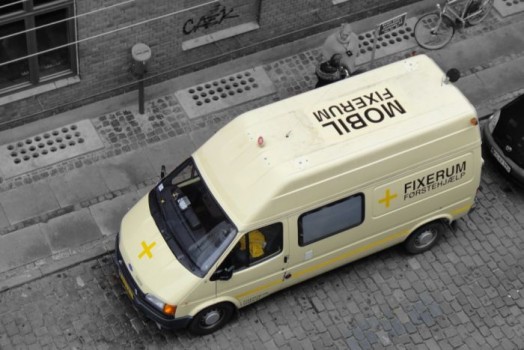INPUD – International Network of People who Use Drugs
sarosip, September 17, 2010
http://drogriporter.hu/en/inpud
This movie is about a global network that aims to challenge the dogma that drug users are worthless
“We are people from around the world who use drugs. We are people who have been marginalized and discriminated against; we have been killed, harmed unnecessarily, put in jail, depicted as evil, and stereotyped as dangerous and disposable . Now it is time to raise our voices as citizens, establish our rights and reclaim the right to be our own spokespersons striving for self-representation and self-empowerment…”
This is the preamble of the Vancouver Declaration, the manifesto of the International Network of People Who Use Drugs (INPUD), a global network that seeks to represent the communities of people who use drugs in international agencies and aims to defend their human rights. This movie is about them.
It is always hard to organize the communities of peope who are stigmatized and marginalized – and there are few other groups in our society that are more stigmatized than people who use drugs. Many people can accept organizations that represent ex-drug users – but an organization that represents current drug users gives them the creeps. For them the idea to organize drug users is the same as to promote drug use per se. A major challenge for all peer-driven user groups is to convince society that their work is not about drugs but about people – people who are not the problem but the solution to the problem.
Another – sometimes even bigger – challenge is to convince the people who use drugs themselves to stand up for their own rights, to build a movement from people whose self-esteem is systematically destroyed by their environment. Drug users live in a hostile world: the simple possession of drugs for personal use is a crime in itself in most countries, the media is full of stories demonizing drug users and many “intelligent” people proudly voice their opinion that they are worth nothing.
The history of drug user activism goes back to the seventies when the first user organizations were established in The Netherlands, faced by blood born infections such as Hepatitis B and C. Today we find many peer-led groups of people who use drugs from Bangkok to London, from Moscow to Vancouver – communities that often fight for their sole survival in the face of deadly diseases, overdoses, torture, organized killings and incaceration.
There are more and more government officials, treatment providers and law enforcement agents who recognize the groundbreaking significance of engaging in a dialogue with people who use drugs. To involve drug users is not only a charitable and humanitarian act but contributes to the improvement of international and national drug policies.
INPUD is the light in the darkness for user activists from all over the world: it gives them hope that change is possible. INPUD is a guarantee that the voice of people who use drugs will not be ignored at international forums that aim to “tackle the drug problem” and makes sure that the slogan of the Vancouver Declaration – “nothing about us without us” – is respected in decision-making processes.
The HCLU is a proud supported and ally of INPUD – in 2009 we even co-organized a protest at the Vienna International Center to stop the global drug war. We hope our new movie will convince You to show your support to their case!

